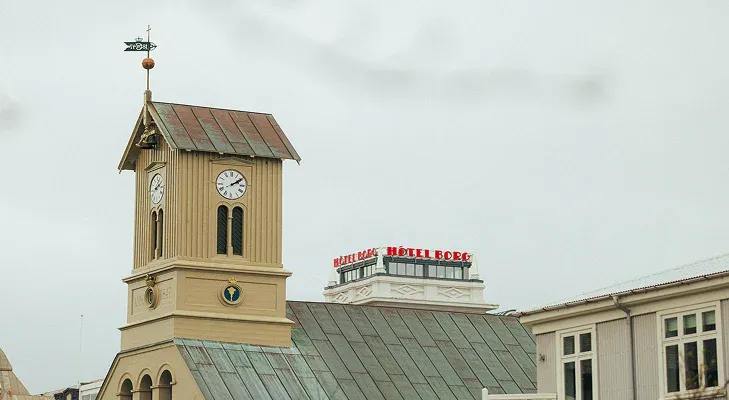
English
The Evangelical Lutheran Church of Iceland is the national church of Iceland. It is a free and independent religious community. Around 70% of Icelandic citizens, both at home and abroad, belong to the Church of Iceland.
The church is organised into 266 congregations around the country, serving under one episcopacy headed by the Bishop of Iceland, with whom two ordination bishops serve as the leaders of the ordained ministry of the church.
The current Bishop of Iceland is Guðrún Karls Helgudóttir. She assumed office in 2024.
The church traces its foundation back to the inauguration of Christianity by the legislative assembly Alþingi in the year 1000. In 1550, the reformation took place in Iceland and since then Lutheranism has been the majority religion in the country.
The Evangelical Lutheran Church of Iceland welcomes everyone and seeks to maintain a community based on brotherly love and the words of Jesus Christ.
To find information and the location of your nearest parish click here.
If you need further information contact kirkjan@kirkjan.is.
Identity of the Church
The Evangelical Lutheran Church of Iceland can be described as a national church, deeply rooted in the country’s history and culture. For more than a thousand years, Christianity has shaped the spiritual and social life of Iceland. Today, around two-thirds of the population are members of the Church.
Historical roots and identity
The Christian faith was formally adopted by the Icelandic nation at Alþingi, the National Assembly, in the year 1000. The Reformation reached Iceland in the mid-16th century, and since then the Church has been Evangelical Lutheran in confession while remaining the same historic and national church of the Icelandic people.
The Evangelical Lutheran Church of Iceland is grounded in the Scriptures and in five five confessions of faith: the Apostles ’Creed, the Nicene Creed, the Athanasian Creed, the Augsburg Confession and Luther’s Small Catechism.
The Church understands itself as part of the one, holy, catholic and apostolic Church, renewed in the light of the Gospel and called to bear witness to God’s grace in every generation.
Structure and character
The Church of Iceland is led by the Bishop of Iceland, who serves as its spiritual leader, together with clergy and lay representatives from across the country. The Church Assembly is its highest decision-making body. There are nine deaneries and around 260 parishes throughout Iceland. Each parish is an open and local community where worship, baptism, confirmation, marriage and funeral services mark the rhythm of people’s lives.
The Church of Iceland combines traditional liturgical forms and a strong musical heritage with a pastoral commitment to serve all who live in the country. It seeks to unite the treasures of the Christian tradition with an openness to renewal and dialogue in contemporary society.
A national and folk church
The Church of Iceland understands itself as a folk church, rooted in the everyday life of the nation and present in towns, villages and rural areas alike. Its role as a national church is reflected both in its historical responsibility for spiritual care and in its engagement with the social and ethical issues of the time. The Church offers pastoral services to all people in Iceland, including those who are not formal members.
Ecumenical and international relations
The Church of Iceland is a member of the Lutheran World Federation, the World Council of Churches and the Conference of European Churches. It maintains close fellowship with the other Nordic Lutheran churches and with partner churches around the world.
Human dignity and inclusion
The Church of Iceland emphasizes the equal worth of every human being as created in the image of God. It seeks to be an inclusive and welcoming church, supporting equality between all genders and affirming the rights and dignity of LGBTQ+ people. Same-sex couples have been able to marry in the Church since 2010, following the introduction of gender-neutral marriage legislation in Iceland.
Pastors for immigrants
There are two pastors serving in the International Congregation of the church, rev. Árni Þór Þórsson and rev. Toshiki Toma, who has served as the church’s pastor for immigrants since 1996. Rev. Toma’s website can be found here.
The main focus of the work of the pastors for immigrants is on the International Congregation, which is based in Breiðholtskirkja. A service is held in English most Sundays at two o‘clock in the afternoon. Prayer services outside Breiðholtskirkja are held regularly and advertised separately.
To find information and the location of your nearest parish click here.
If you have any further information contact kirkjan@kirkjan.is.